
Find Help
More Items From Ergsy search
-
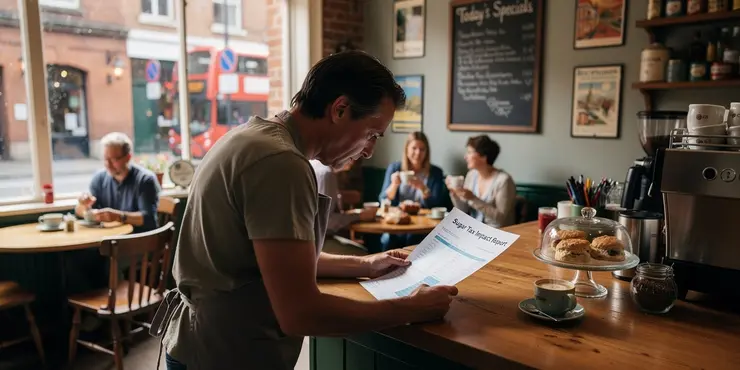
Does the sugar tax apply to small businesses?
Relevance: 100%
-

Is the HMRC Employer Bulletin relevant for small businesses?
Relevance: 63%
-

What is the sugar tax in the UK?
Relevance: 62%
-

How can I get government support for my small business?
Relevance: 60%
-

What types of government support are available for small businesses?
Relevance: 60%
-

What is the Small Business Administration (SBA)?
Relevance: 57%
-

Who pays the sugar tax?
Relevance: 57%
-
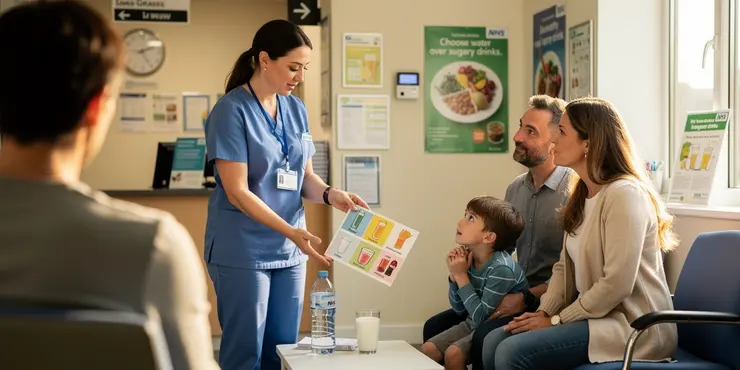
Has the sugar tax been effective?
Relevance: 55%
-
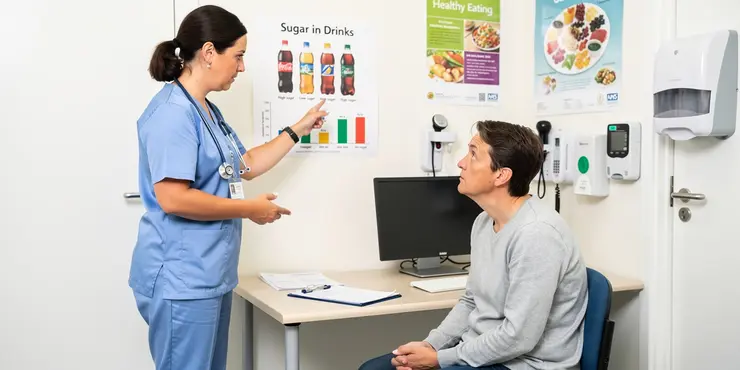
Has the sugar tax affected the sugar content in drinks?
Relevance: 55%
-
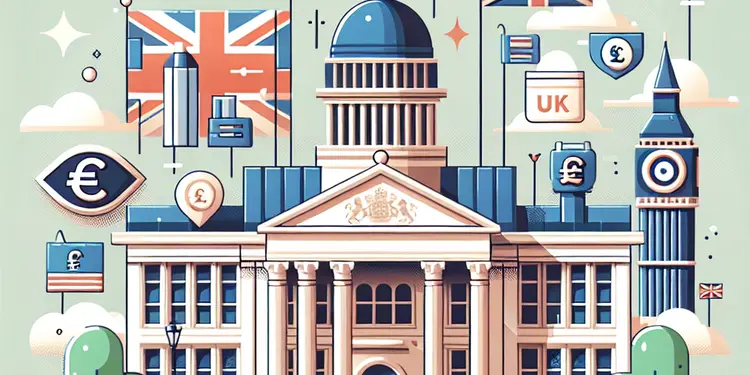
What is the eligibility criteria for government small business grants?
Relevance: 54%
-

Where can I find information on government support programs for small businesses?
Relevance: 52%
-

Are there government grants available for starting a small business?
Relevance: 52%
-
Is the sugar tax applied to diet or zero sugar drinks?
Relevance: 51%
-
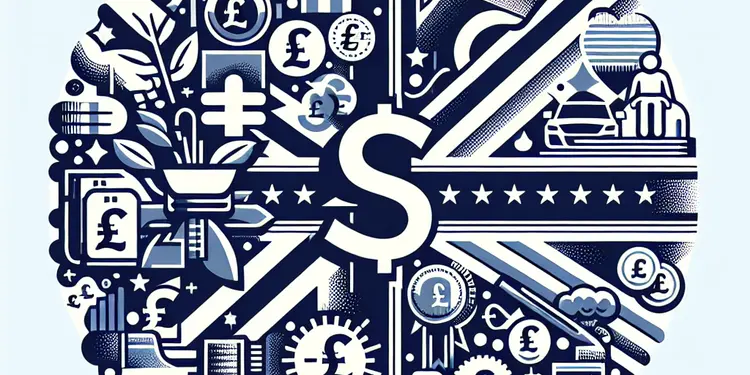
Can I get tax benefits for my small business from the government?
Relevance: 51%
-

How do I apply for a small business loan through a government program?
Relevance: 51%
-

What is the purpose of the sugar tax?
Relevance: 51%
-

How does the sugar tax affect consumers?
Relevance: 50%
-

What are the long-term goals of the sugar tax?
Relevance: 49%
-

Has the sugar tax led to innovation in the drinks industry?
Relevance: 48%
-

Which drinks are exempt from the sugar tax?
Relevance: 47%
-

How is the revenue from the sugar tax used?
Relevance: 47%
-

What should business owners expect from income tax changes in 2026?
Relevance: 46%
-
How much revenue has the sugar tax generated?
Relevance: 45%
-
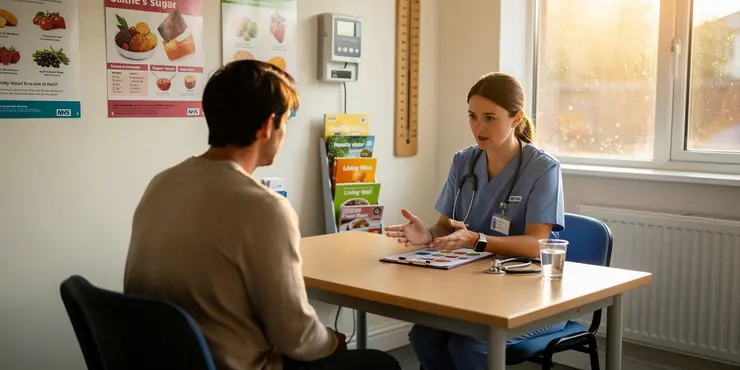
How does the sugar tax align with public health strategies?
Relevance: 44%
-

What impact has the sugar tax had on obesity rates?
Relevance: 44%
-
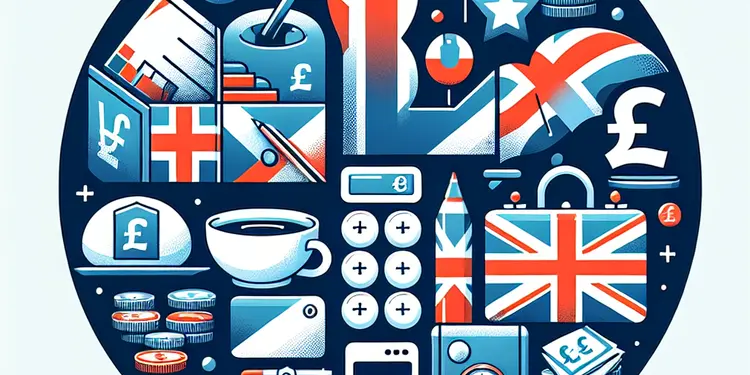
Is there any relief for business assets in Inheritance Tax?
Relevance: 43%
-
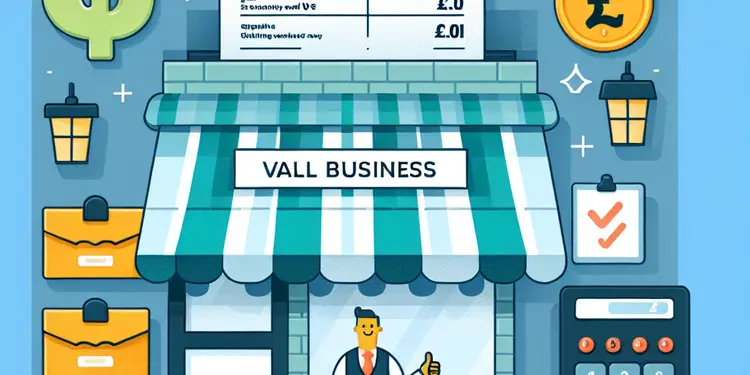
Do all businesses need to charge VAT?
Relevance: 42%
-
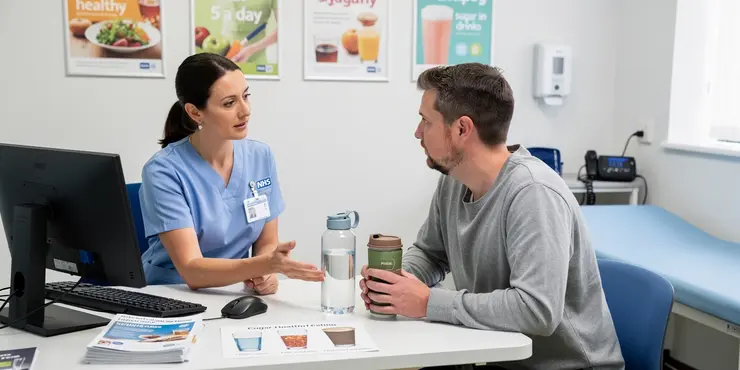
When was the sugar tax introduced in the UK?
Relevance: 39%
-
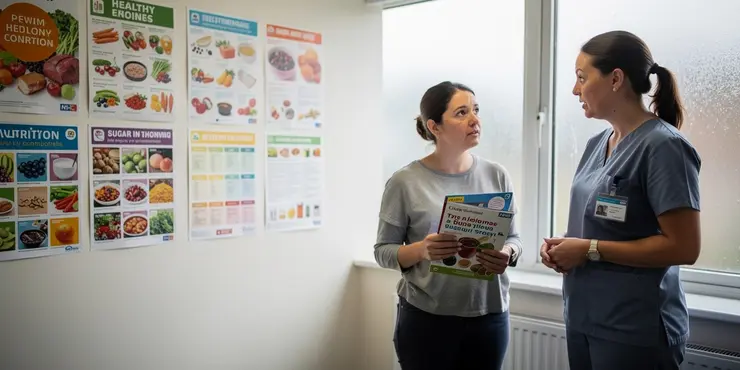
What are the rates for the sugar tax?
Relevance: 38%
-

How is the sugar tax applied?
Relevance: 38%
-
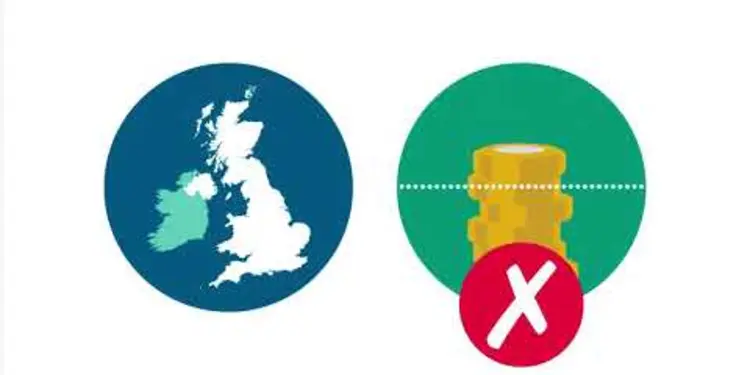
Do I need to register my business for VAT?
Relevance: 36%
-
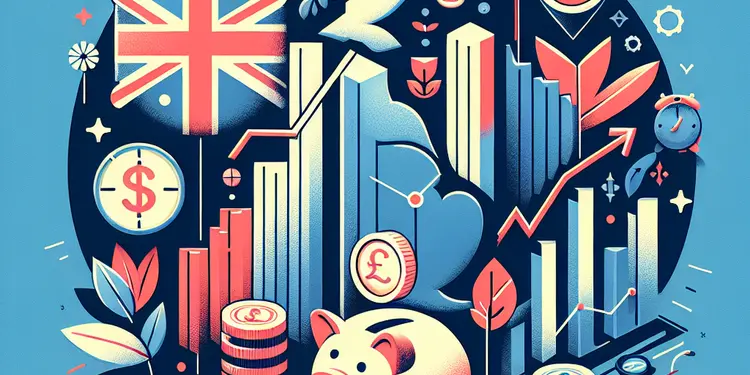
Are there any exemptions from inheritance tax?
Relevance: 35%
-

What is input tax and output tax?
Relevance: 35%
-

Chancellor Unveils Plans to Reform UK Tax System
Relevance: 34%
-

Can businesses be charged Stamp Duty?
Relevance: 34%
-
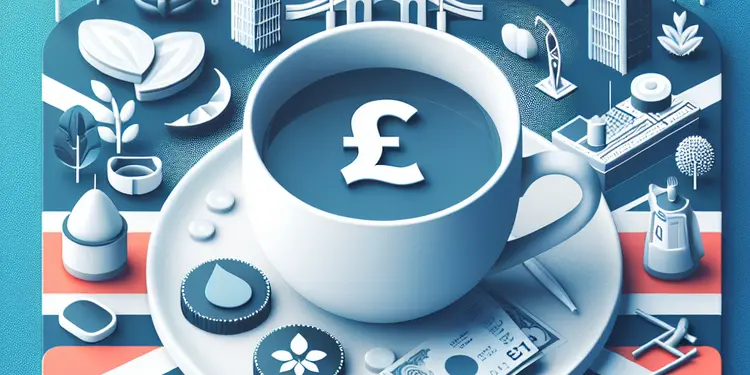
Can I have sugar if I am diabetic?
Relevance: 34%
-

Is honey a better alternative to sugar?
Relevance: 33%
-
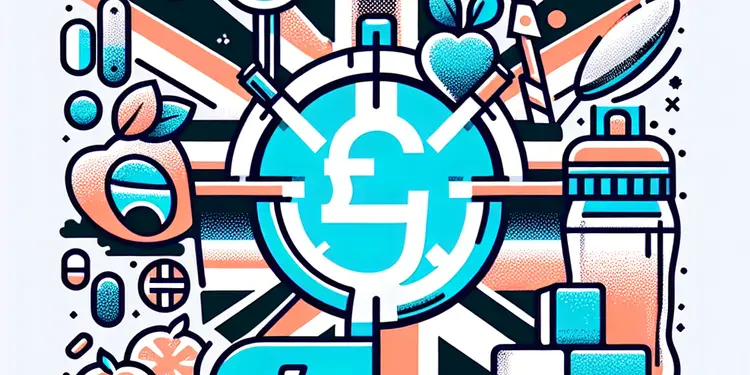
Are sugar substitutes healthier than regular sugar?
Relevance: 33%
-
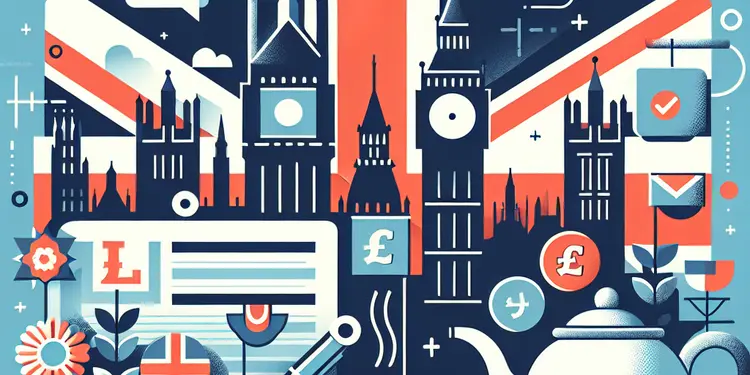
When should a business register for VAT?
Relevance: 33%
-
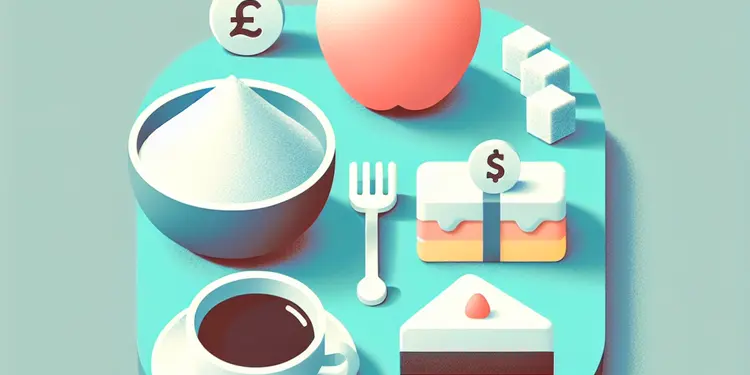
How can I reduce my sugar intake?
Relevance: 33%
Understanding the Sugar Tax
The sugar tax, formally known as the Soft Drinks Industry Levy (SDIL), was introduced in the UK in April 2018. Its primary goal is to address the growing concerns around obesity and related health issues by encouraging manufacturers to reduce the sugar content in their products. This levy applies to soft drink manufacturers and is designed to target sugar-loaded beverages, prompting producers to reformulate products to avoid the additional charge.
Scope of the Sugar Tax
The sugar tax is applicable to producers, importers, and bottlers of sugary soft drinks. The levy is charged on soft drinks that contain added sugar and have a total sugar content of 5 grams or more per 100 millilitres. The tax is structured in two bands: one for drinks with 5-8 grams of sugar per 100 millilitres, and a higher rate for those with more than 8 grams per 100 millilitres. Under this system, the intent is to reduce consumption of high-sugar drinks by making them more expensive for consumers, thus encouraging healthier choices.
Application to Small Businesses
For small businesses, understanding the implications of the sugar tax is crucial. The levy primarily targets the businesses involved in the production and importation of sugary drinks rather than retail outlets. This means that small businesses selling these products are generally not directly responsible for paying the levy to the government. However, they may still face impacts indirectly. Producers who are liable for the levy might increase the wholesale cost of sugary beverages to cover the tax, which could result in higher prices for small retailers who sell these products to consumers.
Exemptions and Considerations
There are certain exemptions within the sugar tax framework. For instance, milk-based drinks and pure fruit juices fall outside of the levy’s scope, as they are not subject to added sugar tax. Furthermore, the smallest producers—those making under 1 million litres of eligible soft drinks per year—are exempt from paying the levy, which may include some small businesses that produce their beverages. This exemption helps small businesses by not burdening them with additional taxes, allowing them to maintain competitive pricing in the market.
Conclusion
In conclusion, while the sugar tax in the UK does not directly impose financial responsibilities on small businesses that sell sugary drinks, it does affect them indirectly through potential price increases from manufacturers and suppliers. Small producers crafting below the threshold volume benefit from an exemption. Nonetheless, all businesses should remain informed on how these regulations might influence pricing strategies and customer buying behaviours. By being aware of and adapting to these changes, small businesses can navigate the challenges posed by the sugar tax while continuing to meet consumer demand effectively.
Understanding the Sugar Tax
The sugar tax is a rule from the UK. It started in April 2018. This rule is meant to make people healthier by getting drink makers to use less sugar. The tax is for companies that make sugary drinks. If drinks have too much sugar, companies have to pay extra money. This extra money is called a levy. The idea is to get companies to make drinks with less sugar so they don't have to pay the tax.
Scope of the Sugar Tax
This sugar tax is for those making, bringing in, or bottling sugary drinks. The tax is on drinks with added sugar and 5 grams or more of sugar per 100 millilitres. There are two levels of tax. One for drinks with 5-8 grams of sugar and a higher one for more than 8 grams. This makes sugary drinks more costly so people might pick drinks with less sugar.
Application to Small Businesses
Small businesses need to know how the sugar tax works. The tax mainly affects the people who make and bring in sugary drinks, not the shops that sell them. But, if producers have to pay the tax, they might charge shops more for sugary drinks. This could mean shops have to sell the drinks at higher prices to customers.
Exemptions and Considerations
Some drinks don't have to pay the sugar tax. Milk-based drinks and pure fruit juices are not taxed because they have no added sugar. Also, small producers making less than 1 million litres of soft drinks a year don't pay the tax. This helps small businesses by not making them pay more, so they can keep prices low for their customers.
Conclusion
In short, the sugar tax in the UK may not make small businesses pay more money directly. But it can still affect them if producers raise prices due to the tax. Small producers who make less than the set amount don't have to pay the tax. All businesses should learn how the tax could change prices and what customers buy. Staying informed helps businesses deal with these changes and still satisfy their customers.
Frequently Asked Questions
What is the sugar tax?
The sugar tax, also known as the Soft Drinks Industry Levy, is a government-imposed tax on sugary soft drinks to reduce sugar consumption and promote healthier choices.
Does the sugar tax apply to small businesses?
Yes, the sugar tax applies to all businesses that produce, package, or import sugary soft drinks, regardless of size.
Are there any exemptions from the sugar tax for small businesses?
No, small businesses are not exempt from the sugar tax if they produce, package, or import sugary drinks within its scope.
How is the sugar tax calculated?
The sugar tax is calculated based on the sugar content of drinks, with different rates for drinks containing 5 grams or more per 100ml of sugar.
What types of products are subject to the sugar tax?
The sugar tax applies to soft drinks that have added sugar and contain at least 5 grams of sugar per 100ml.
Do small retailers need to pay the sugar tax?
No, retailers who sell pre-packaged drinks do not pay the sugar tax. The tax is paid by producers and importers.
Can small businesses pass the cost of the sugar tax to consumers?
Yes, small businesses can choose to pass the cost of the sugar tax onto consumers by adjusting product prices.
Are there reduced sugar drinks exempt from the tax?
Drinks with less than 5 grams of sugar per 100ml are exempt from the sugar tax.
Do small cafes pay the sugar tax for sugary drinks they serve?
No, cafes serving drinks do not pay the sugar tax directly; it is paid by the original producer or importer.
How can small businesses reduce their sugar tax liability?
Businesses can reformulate products to reduce sugar content or sell drinks with less than 5 grams of sugar per 100ml.
Is there a separate registration process for small businesses regarding the sugar tax?
All businesses producing, packaging, or importing taxable drinks must register with HMRC, regardless of size.
What happens if small businesses don't comply with the sugar tax regulations?
Non-compliance can lead to fines or penalties from the responsible authority for businesses not adhering to the regulations.
How often do small businesses need to report sugar tax liabilities?
Businesses must report and pay the sugar tax to HMRC quarterly.
Are all drinks with sugar subject to the tax?
No, only drinks meeting the threshold of 5 grams of sugar per 100ml or more and having added sugar are taxed.
Does the sugar tax apply to milk-based drinks?
Milk-based drinks are generally exempt from the sugar tax.
Are fruit juices included in the sugar tax?
Pure fruit juices are exempt from the sugar tax, as they do not have added sugar.
Can small businesses claim a refund on the sugar tax?
There are specific circumstances where a refund may be claimed, such as if a drink is used as an ingredient in other products.
Does the sugar tax apply to alcoholic drinks?
No, the sugar tax does not apply to alcoholic drinks; other regulations cover them.
Is the sugar content in artificially sweetened drinks taxed?
No, artificially sweetened drinks without added sugar are not subject to the tax.
How can small businesses ensure compliance with the sugar tax?
Businesses should accurately measure sugar content, keep detailed records, and ensure timely registration and reporting with HMRC.
What is the sugar tax?
The sugar tax is a rule made by the government. It makes drinks with lots of sugar more expensive. The rule is to help us drink less sugary drinks because too much sugar is not good for our health.
Here are some helpful tips:
- Look for drinks that say "low sugar" or "sugar-free."
- Try drinking more water. It's healthy for you.
- Ask someone to help you find drinks with less sugar.
The sugar tax is a special rule. It is also called the Soft Drinks Industry Levy. This rule makes fizzy drinks with lots of sugar cost more money. The government made this rule to help people drink less sugar and make healthier choices.
Do small businesses have to pay the sugar tax?
Yes, the sugar tax is for all businesses. This includes those that make, pack, or bring in sugary soft drinks. It doesn't matter how big or small the business is.
Do small businesses have to pay the sugar tax?
If you have a small business, do you need to pay the sugar tax?
A sugar tax is money paid when selling sugary drinks.
Some small businesses might not have to pay this tax.
If you're not sure, you can ask for help. Talking to a business advisor can be helpful.
No, small businesses still need to pay the sugar tax if they make, package, or bring in sugary drinks.
How do they work out the sugar tax?
The sugar tax is a way to make sugary drinks cost more money. This helps people buy less sugary drinks.
Here is how it is worked out:
- If a drink has a little bit of sugar, the tax is small.
- If a drink has a lot of sugar, the tax is bigger.
If you need help understanding this, you can:
- Ask someone to explain it to you.
- Use a calculator to try working out examples.
- Look for pictures or videos online that explain the sugar tax.
The sugar tax is money added to drinks that have a lot of sugar. If a drink has 5 grams or more sugar in 100ml, it costs more.
What foods and drinks have a sugar tax?
Some drinks with lots of sugar have extra costs. This is called a sugar tax. Learn which drinks have this tax.
Supporting tools: If you find reading hard, try using finger tracking to follow the words as you read.
The sugar tax is a rule about drinks. It is for drinks with added sugar. If a drink has 5 grams or more of sugar in 100ml, it has this tax.
Do small shops need to pay the sugar tax?
Small shops sell things like candy and soda. They might need to pay extra money called a "sugar tax" if these things have a lot of sugar. This is to help people be healthier.
If you work in a small shop, you can check the rules. You can also ask for help from an adult if you're not sure. They can help you understand what to do about the sugar tax.
No, shops that sell drinks already in packages do not pay the sugar tax. The people who make or bring in the drinks pay the tax.
Can small shops make customers pay for the sugar tax?
Yes, small businesses can make prices higher for people who buy things, to cover the cost of the sugar tax.
Do some low-sugar drinks not have extra costs?
Drinks with less than 5 grams of sugar in 100ml do not have to pay the sugar tax.
Do small cafes have to pay money for sugary drinks they sell?
This can be set in smaller paragraphs to make reading easier.
Tip: It can help to use tools like 'text-to-speech' to hear the text aloud.
Tip: Highlighting key parts of the sentences can make the text clearer.
No, cafes that sell drinks do not pay the sugar tax themselves. The company that makes or brings in the drinks pays the tax.
How can small businesses pay less sugar tax?
Here are some ways small businesses can pay less sugar tax:
- Make drinks with less sugar: Use less sugar in your drinks. This can lower the tax.
- Make smaller drinks: Serve drinks in smaller sizes. Smaller drinks may mean less tax.
- Use sugar alternatives: Try using less sugary things, like sweeteners, instead of sugar.
- Check the rules: Learn about the sugar tax rules. Knowing them can help you plan better.
Helpful tool: Use a calculator to see how much sugar is in your drinks. This can help you know how much tax you have to pay.
Businesses can make changes to their products to have less sugar. They can also sell drinks with less than 5 grams of sugar in every 100ml.
Do small businesses have a different way to sign up for the sugar tax?
If you have a small business, do you need to sign up for the sugar tax in a different way?
Here is how you can understand better:
- Use pictures or charts to see the steps.
- Ask someone to explain it to you.
- Check government websites for help.
All businesses that make, package, or bring in drinks that are taxed must sign up with HMRC, no matter how big or small they are.
What If Small Businesses Don't Follow Sugar Tax Rules?
If a small business doesn't follow the sugar tax rules, some things might happen:
- The business might have to pay money as a penalty.
- They might have to fix the problem and do it the right way.
- Someone might come to check if they are following the rules.
Supportive Tools:
- Use simple checklists to keep track of rules.
- Ask someone for help if you don't understand the rules.
- Use pictures or videos to learn about sugar tax rules.
If a business does not follow the rules, they might have to pay money as a punishment. This is called a fine or penalty. The organization in charge will make sure businesses follow the rules.
How often do small businesses need to tell about sugar tax?
Here is a simple version:
How many times do small businesses need to say how much sugar tax they owe?
Here are some tips to help:
- Use pictures to understand better.
- Ask someone to explain if you need help.
- Break information into small steps.
Every three months, businesses must tell HMRC how much sugar tax they owe and pay it.
Do all sugary drinks have a tax?
No, the tax is only for drinks that have 5 or more grams of added sugar in every 100ml.
Does the sugar tax affect drinks with milk?
Drinks with milk do not have the sugar tax.
Does the sugar tax include fruit juices?
Pure fruit juices don't have a sugar tax. This means you don't pay extra because they have no added sugar.
Can small businesses get money back from the sugar tax?
You might be able to get your money back for a drink if you use it to make something else.
Does the sugar tax apply to alcoholic drinks?
The sugar tax is money added to drinks with a lot of sugar. It does not usually include alcoholic drinks. This means most alcohol is not taxed for sugar.
If you want to know more, you can ask an adult or look for videos that explain it simply. Using pictures or videos can help to understand better.
No, the sugar tax does not cover drinks with alcohol. There are different rules for them.
Do drinks with fake sugar have a tax on their sugar?
No, drinks with fake sugar and no added sugar do not have the tax.
How can small businesses follow the sugar tax rules?
Here is how small businesses can follow the sugar tax rules:
- Learn about the sugar tax: Find out what the sugar tax is and why it is important.
- Check your products: Look at what you sell and see if any of your products have lots of sugar.
- Change your recipes: Try using less sugar in the things you make to sell.
- Label clearly: Make sure your product labels show how much sugar is in each item.
- Ask for help: Talk to an expert if you find it hard to understand the rules.
Here are some helpful tools and ways:
- Use websites and books that explain the sugar tax in simple words.
- Join a group of small businesses to share ideas and tips.
- Use apps that help you track sugar in your products.
Businesses need to know exactly how much sugar is in their products. They should keep clear records of this information. Also, businesses must register and share this information with HMRC on time.
Some helpful tools for businesses include:
- Sugar measuring kits
- Record-keeping apps
- Calendar reminders for deadlines
Useful Links
This website offers general information and is not a substitute for professional advice.
Always seek guidance from qualified professionals.
If you have any medical concerns or need urgent help, contact a healthcare professional or emergency services immediately.
Some of this content was generated with AI assistance. We’ve done our best to keep it accurate, helpful, and human-friendly.
- Ergsy carfully checks the information in the videos we provide here.
- Videos shown by Youtube after a video has completed, have NOT been reviewed by ERGSY.
- To view, click the arrow in centre of video.
- Most of the videos you find here will have subtitles and/or closed captions available.
- You may need to turn these on, and choose your preferred language.
- Go to the video you'd like to watch.
- If closed captions (CC) are available, settings will be visible on the bottom right of the video player.
- To turn on Captions, click settings .
- To turn off Captions, click settings again.
More Items From Ergsy search
-

Does the sugar tax apply to small businesses?
Relevance: 100%
-

Is the HMRC Employer Bulletin relevant for small businesses?
Relevance: 63%
-

What is the sugar tax in the UK?
Relevance: 62%
-

How can I get government support for my small business?
Relevance: 60%
-

What types of government support are available for small businesses?
Relevance: 60%
-

What is the Small Business Administration (SBA)?
Relevance: 57%
-

Who pays the sugar tax?
Relevance: 57%
-

Has the sugar tax been effective?
Relevance: 55%
-

Has the sugar tax affected the sugar content in drinks?
Relevance: 55%
-

What is the eligibility criteria for government small business grants?
Relevance: 54%
-

Where can I find information on government support programs for small businesses?
Relevance: 52%
-

Are there government grants available for starting a small business?
Relevance: 52%
-
Is the sugar tax applied to diet or zero sugar drinks?
Relevance: 51%
-

Can I get tax benefits for my small business from the government?
Relevance: 51%
-

How do I apply for a small business loan through a government program?
Relevance: 51%
-

What is the purpose of the sugar tax?
Relevance: 51%
-

How does the sugar tax affect consumers?
Relevance: 50%
-

What are the long-term goals of the sugar tax?
Relevance: 49%
-

Has the sugar tax led to innovation in the drinks industry?
Relevance: 48%
-

Which drinks are exempt from the sugar tax?
Relevance: 47%
-

How is the revenue from the sugar tax used?
Relevance: 47%
-

What should business owners expect from income tax changes in 2026?
Relevance: 46%
-
How much revenue has the sugar tax generated?
Relevance: 45%
-

How does the sugar tax align with public health strategies?
Relevance: 44%
-

What impact has the sugar tax had on obesity rates?
Relevance: 44%
-

Is there any relief for business assets in Inheritance Tax?
Relevance: 43%
-

Do all businesses need to charge VAT?
Relevance: 42%
-

When was the sugar tax introduced in the UK?
Relevance: 39%
-

What are the rates for the sugar tax?
Relevance: 38%
-

How is the sugar tax applied?
Relevance: 38%
-

Do I need to register my business for VAT?
Relevance: 36%
-

Are there any exemptions from inheritance tax?
Relevance: 35%
-

What is input tax and output tax?
Relevance: 35%
-

Chancellor Unveils Plans to Reform UK Tax System
Relevance: 34%
-

Can businesses be charged Stamp Duty?
Relevance: 34%
-

Can I have sugar if I am diabetic?
Relevance: 34%
-

Is honey a better alternative to sugar?
Relevance: 33%
-

Are sugar substitutes healthier than regular sugar?
Relevance: 33%
-

When should a business register for VAT?
Relevance: 33%
-

How can I reduce my sugar intake?
Relevance: 33%


